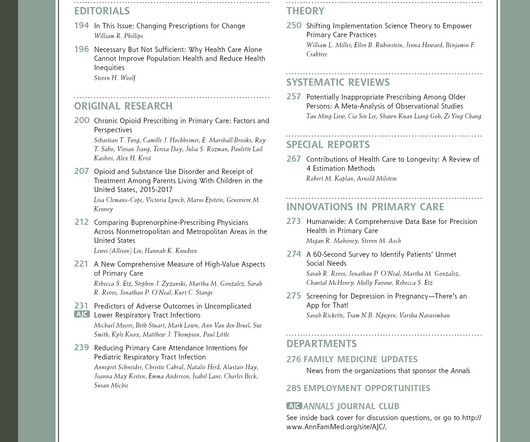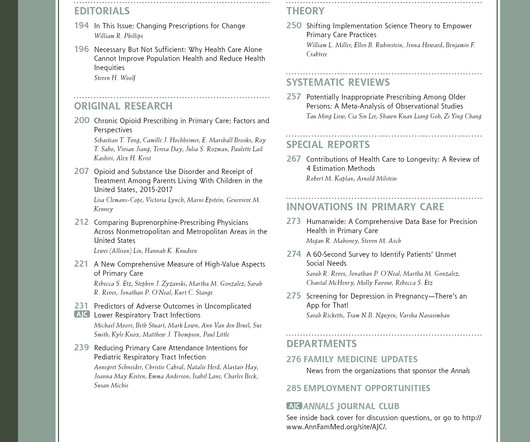SGLT-2 inhibitor, cardiovascular risk and outcome in patients with comorbidity of hypertension and diabetes [Cardiovascular disease]
Annals of Family Medicine
NOVEMBER 20, 2024
Context Two thirds of diabetes patients complicated with hypertension, and comorbidity increase 4-fold risk of atherosclerotic cardiovascular disease (ASCVD). Setting or Dataset Five electronic systems of community clinic. Population Studied individuals with comorbidity of hypertension and type 2 diabetes.






















Let's personalize your content